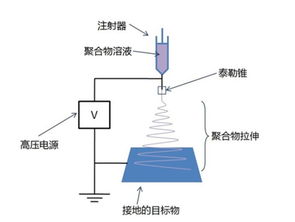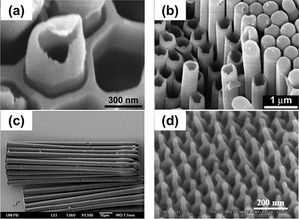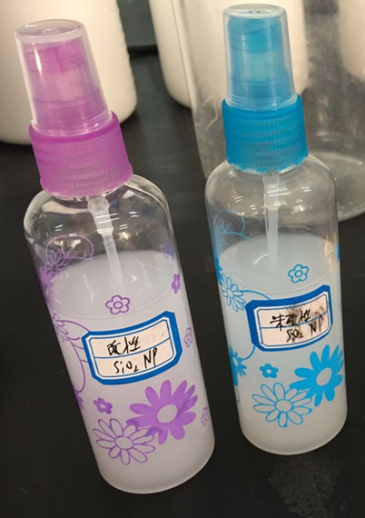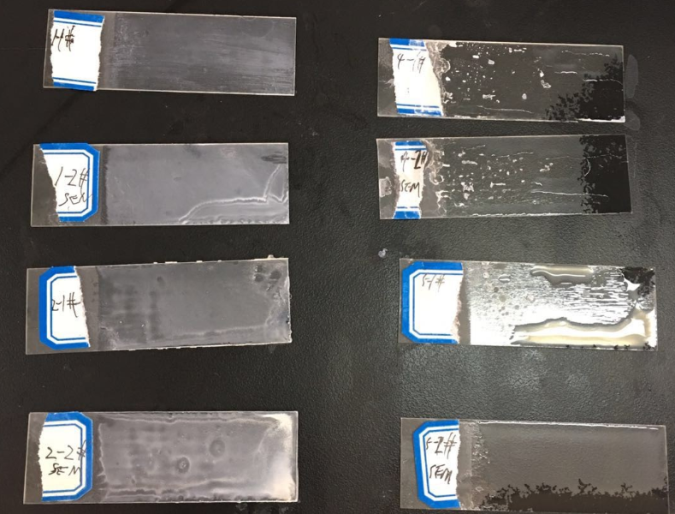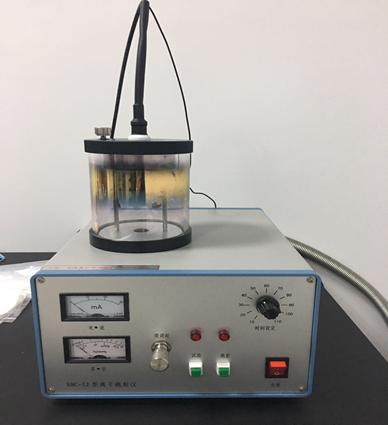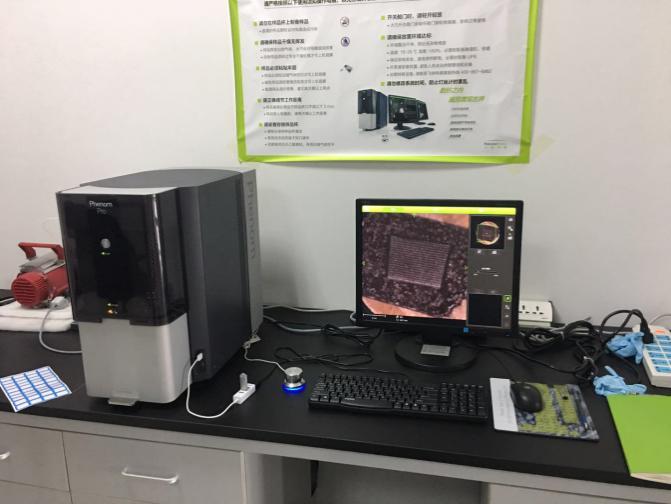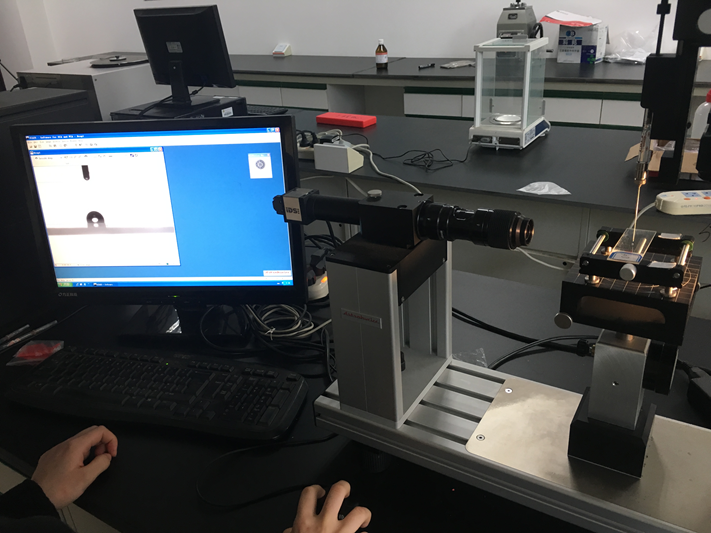改性纳米SiO2疏水自清洁复合涂层的制备与性能分析毕业论文
2020-07-16 20:27:41
摘 要
疏水涂层是表面静态水接触角θ大于90°的一类低表面能涂层,而超疏水涂层是一种具有特殊表面性质的新型涂层,其表面静态水接触角θ大于150°,具有防水、防雾、防雪、防污染和自清洁等重要特点,在航空航天、建筑、汽车、纺织等诸多领域拥有广泛的应用前景。
本文利用硅油(聚硅氧烷)改性不同浓度的纳米SiO2颗粒,并在玻璃基体表面构建聚氨酯有机粘结层,最后通过硅烷偶联剂改性制备聚氨酯有机层-硅烷偶联剂-改性纳米SiO2复合涂层。采用扫描电子显微镜(SEM)研究涂层表面和截面微观形貌,采用接触角测试仪测试涂层憎水性能。通过在玻璃基体表面制备不同结构的复合涂层,研究纳米SiO2颗粒浓度、有机粘结层、纳米颗粒的改性对涂层透明度、疏水性和表面微观结构的影响规律。研究结果表明:纳米SiO2颗粒浓度越低(2%~2‰),涂层透明性越好,当纳米SiO2颗粒含量过低时,涂层会失去超疏水性能;无论浓度高低,单一的纳米SiO2颗粒并不能与玻璃基体形成有效的结合(接触角仅为10°),通过添加聚氨酯粘结层和改性纳米颗粒可以提高纳米SiO2颗粒与玻璃基体的粘结性,以及提高涂层表面憎水性;硅烷-硅油改性纳米SiO2颗粒可以在玻璃基体-聚氨酯有机涂层表面形成均匀、有效的纳米效应表面,疏水性能良好,接触角可达到153°。如此简单有效的超疏水复合涂层制备技术可为其工业化应用提供一定的理论指导和实际工程参考作用。
关键词:超疏水涂层 纳米SiO2颗粒 改性 接触角
Preparation and Performance Analysis of Modified Nanometer SiO2 Hydrophobic Self-cleaning Composite C oatings
ABSTRACT
The hydrophobic coating is a type of low surface energy coating with surface static water contact angle θ greater than 90°, and the superhydrophobic coating is a new type of coating with special surface properties, and its surface static water contact angle θ is greater than 150°. With important features such as waterproof, anti-fog, anti-snow, anti-pollution and self-cleaning, it has a wide range of application prospects in aerospace, construction, automotive, textile and many other fields.
In this paper, silicone oil (silicone) was used to modify different concentrations of nano-SiO2 particles, and an organic polyurethane adhesive layer was formed on the surface of the glass substrate.Finally, the polyurethane organic layer-silane coupling agent-Modified nanometer SiO2 composite coating was prepared by silane coupling agent. Scanning electron microscopy (SEM) was used to study the surface morphology and cross-section microstructure. The contact angle tester was used to test the hydrophobic properties of the coating. Through the preparation of composite coatings with different structures on the glass substrate surface, the influence of nano-SiO2 particle concentration, organic adhesion layer, and nanoparticle modification on the transparency, hydrophobicity and surface microstructure of the coating was investigated. The results show that the lower concentration of nano-SiO2 particles (2%~2‰), the better the coating transparency, when the content of nano-SiO2 particles is too low, the coating will lose the superhydrophobic performance; regardless of the concentration, a single nano-SiO2 Particles do not form an effective bond with the glass substrate (contact angle is only 10°). The adhesion of nano-SiO2 particles to the glass substrate can be improved by adding a polyurethane adhesive layer and modified nanoparticles, and the hydrophobicity of the coating
surface can be improved. Silane-silicone modified nano-SiO2 particles can form a uniform and effective nano-effect surface on the surface of the glass matrix-polyurethane organic coating. The hydrophobicity is good, and the contact angle can reach 153°. Such simple and effective superhydrophobic composite coating preparation technology can provide certain theoretical guidance and practical engineering reference for industrial application.
Key words: Superhydrophobic coating;Nano-SiO2 particles;Modified; Contact angle
目录
摘 要 Ⅰ
ABSTRACT Ⅱ
第一章 绪论 1
1.1引言 1
1.2超疏水表面的基本原理 1
1.3超疏水涂层的制备 4
1.4经济性分析 8
1.5选题依据和研究内容 8
1.5.1 选题依据 8
1.5.2 研究内容 9
第二章 实验部分 10
2.1 实验材料、仪器与涂层制备 10
2.1.1 实验材料 10
2.1.2 实验仪器 10
2.1.3 玻璃基体超疏水涂层制备流程 10
2.2 测试表征 14
2.2.1 扫描电镜观察 14
2.2.2 接触角测试 15
第三章 结果与讨论 16
3.1 不同纳米SiO2颗粒含量对玻片透明性影响 16
3.2 不同结构涂层对玻片疏水性能的影响 18
第四章 结论与展望 25
4.1 结论 25
4.2 展望 25
参考文献 27
致 谢 30
第一章 绪论
1.1引言
自然界中可以找到各种各样的超疏水表面,许多植物和动物都表现出优良的疏水能力,例如荷叶,玫瑰花瓣,芋头叶,水稻叶,水黾腿,蝉翼,黄油翅膀,企鹅身体羽毛,以及其他许多例子[1]。莲叶是自然界超疏水表面中最突出的例子之一。下雨时雨滴打在荷叶上,荷叶表面通过液滴的滚动和跳动去除污染物,从而起到自清洁的作用。这种自我清洁的效果是由于161±2°的高接触角和2°的低滚动角,这种效应使这个植物成为纯洁的象征[2]。电子显微镜的观察表明,分层的表面粗糙度和低表面能蜡状材料的组合是这种超疏水性的主要原因。江雷研究发现荷叶独特的粗糙结构是它具有超疏水性能的原因所在,荷叶具有微米尺寸(3-10μm)粗糙度的乳突结构和具有纳米尺寸(70-100nm)粗糙度且低表面能的晶蜡层[3]。水黾腿,蝉翼和水稻叶是分层超疏水结构的其他例子。除了“荷叶效应”之外,还有一种“花瓣效应”,指的是玫瑰花瓣表面的152.4°的高接触角,即使当表面颠倒时,水滴也不能滚动或滑动[4]。这表明了另外一种不同类型的超疏水性,即高粘附性。在研究人员对大量的动植物超疏水表面的研究后,进行仿生学探索,利用人工进行超疏水涂层的制备,使得物体表面也具备超疏水性能。
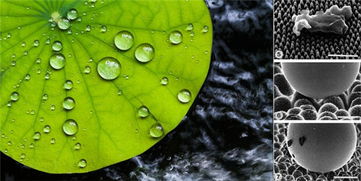
相关图片展示:
